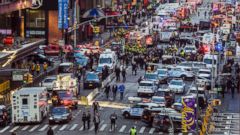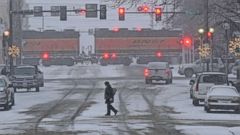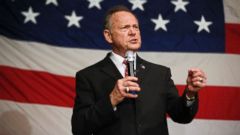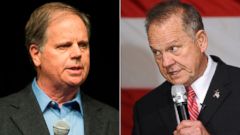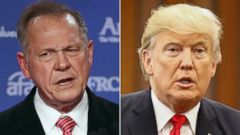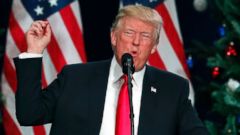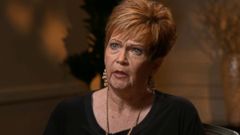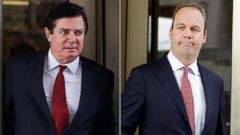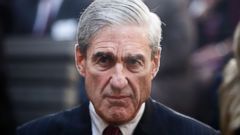Tens of thousands of people attended a Hezbollah rally in Beirut on Monday, where the militant group's leader vowed to return its focus to Israel after years of fighting in Syria's civil war.
At the rally, called to protest U.S. President Donald Trump's decision to recognize Jerusalem as the capital of Israel, Hezbollah leader Hassan Nasrallah said he hoped the "foolish decision" would mark the "beginning of the end" of the Jewish state.
Nasrallah said his group is almost done fighting extremists elsewhere in the region, and will now "give all its time" to Jerusalem and the Palestinians. "Death to Israel!" he said in the fiery address, which was broadcast from an undisclosed location and shown on big screens at the rally.
Hezbollah forced Israeli troops out of southern Lebanon in 2000, and the group battled Israel to a bloody stalemate six years later. The Iranian-backed militant group is believed to have a massive arsenal of rockets capable of hitting much of Israel's territory, and its battle-hardened fighters played a key role in turning the tide of Syria's civil war in favor of President Bashar Assad.
Nasrallah called on Palestinian armed groups and others in the region to come up with "unified strategy" to confront Trump's decision. He said the Palestinians and Arab leaders should halt all negotiations with Israel, and called for a boycott of the Jewish state.
The protesters marched through the streets of southern Beirut, a Hezbollah stronghold, waving flags and chanting in support of the Palestinians, who claim east Jerusalem as the capital of their future state.
The rally came a day after a violent protest outside the U.S. Embassy in Beirut, where security forces fired tear gas and water cannons at rowdy protesters who pelted them with stones. The protesters were hundreds of meters (yards) from the embassy.
Lebanon is home to over 450,000 Palestinian refugees, who make up nearly 10 percent of the population. Many are the descendants of those who fled after the creation of Israel in 1948.
Trump's announcement on Wednesday broke with decades of U.S. policy and an international consensus that Jerusalem's fate should be decided by direct Israeli-Palestinian negotiations. Palestinians viewed the U.S. declaration as a blatantly pro-Israel move, and protests have erupted across the Arab and Muslim world since the announcement.


